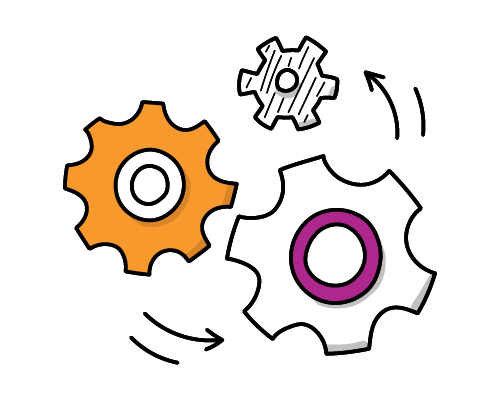Transforming the Student Transfer Process in Michigan Schools
Case Study: Michigan Data Hub
Michigan's 'Snack Packs' accelerate the student transfer process by delivering critical records in just a few clicks.
Overview
Student data can offer educators valuable insight into children’s unique needs, strengths, and academic performance, enabling tailored instruction and ensuring smoother transitions for transfer students.
However, because software tools don’t always talk to each other (or integrate with systems at the local or state level), it’s difficult for teachers and school leaders to track down information and challenging to exchange data between districts. This means that when a student transfers from one district to another, educational staff may not know what services students are eligible to receive upon enrollment. As a result, students risk missing weeks or months of crucial learning time — and services they’re entitled to — while schools wait for data to arrive.

After recognizing these challenges, the Center for Educational Performance and Information (CEPI) collaborated with the Michigan Data Hub (MiDataHub), and Student information system vendors creating a portable student record service called Snack Pack. This service provides a small but critical set of records from a student’s previous district to the newly enrolled district upon transfer.
Using Snack Pack, administrators, teachers, counselors, and other relevant personnel can deliver the support and scaffolding a student needs to excel from their first day, preventing learning loss and creating a more streamlined experience for everyone involved.
How It Works
Request ID
The transfer school requests the student ID from CEPI via the UIC Services API built into the Michigan Data Hub.
Request Snack Pack
After requesting and obtaining the student ID, the transfer school can request the Snack-Pack.
Import Records
Once the request is made and validated, the Snack Pack is available in the transfer school's SIS.
How Michigan Leaders Connected Student Data Across Districts
Programs like Snack Pack are possible thanks to state education leaders’ collaboration with other state and local agencies and service providers — including the Center of Educational Performance Information (CEPI) and student information system vendors. Together, these dedicated education professionals introduced a data standard — a common language that allows data to flow easily between software systems.

Leveraging the Ed-Fi Data Standard, the state developed the Michigan Data Hub (MiDataHub) to connect districts and give educators a more complete view of the resources necessary for student learning. Connecting data across districts saves school and district personnel countless hours of labor, freeing them up to focus on other high-impact efforts — like working directly with students. It also helps ensure nothing slips through the cracks.
For example, the Snack Pack system sends information to a student’s new school and district administrative team identifying all the programs a student participated in and services they received in their previous district. Student Information Systems can further streamline data access, ensuring appropriate school personnel receive a notification upon a student’s eligibility for a service. If, for example, a student is due for an Individualized Education Program (IEP), the system would send an alert to the special education provider in the district.
Opening a New World of Possibility
Having a single, state-wide data integration system goes beyond streamlining the transfer student process. MiDataHub also collaborates with state organizations to support initiatives like MiRead, an early literacy portal that helps teachers determine which students need extra support, and MiEWIMS (Michigan Early Warning Intervention and Monitoring System), a system that allows teachers, counselors, and administrators to identify and monitor students who need additional support to succeed.
By connecting systems and allowing for a more effortless flow of information between schools, districts, and the state, Michigan has begun unlocking the potential of student data and ensuring a brighter future for every child.
Ready to Get Started?
Create a free account to access Ed-Fi tools and resources. Start your journey to connected data today.
Create An Ed-fi AccountNot sure where to begin? Contact Us!

